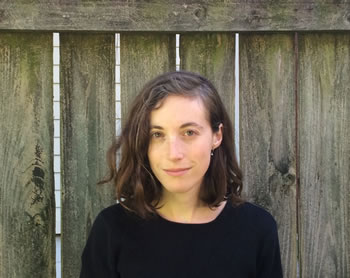|
For a long time, I thought I was doing it all wrong. The whole writing thing. I had this vision of myself sitting down in a quiet room. The sunlight would glance across my totally spotless desk and dapple the clean wall. I would look at the screen, or the typewriter, or the yellow legal pad, and I would enter the Zone. The power of my characters would propel me deep into the poetry of the narrative, or the plot would drive me into a place where I forgot everything else: The papers I needed to grade, the errand I needed to run, the leftovers in the fridge.
Moments like these do happen when I’m writing sometimes (although I’ve never been so wrapped up in a story as to forget about leftovers). Yet more often, even if I turn off the WiFi connection, I find myself pulled between the page and the weird spiral of my thoughts, which rarely constrain themselves to the story at hand. For a long time while I was supposed to be writing, I would find myself thinking about the news and feeling depressed. Or I would compose an email in my head to a friend about something funny that had happened the day before. A few times I’d find myself staring out the window, thinking about how the Instagram account of some rejected suitor on The Bachelorette—why was that contestant always posting photos of himself with puppies? Was he trying to prove he wasn’t the villain he was portrayed to be on TV?
Then I’d feel outraged and guilty. What was I doing, spending twenty minutes of good writing time thinking about the way a stranger was trying to fix their Internet reputation? I don’t always have the luxury to set aside a couple of hours for writing, so in the past when I did get to set those hours aside, and failed to focus, I could be especially harsh on myself. A real writer wouldn’t get off track like this, I told myself, hoping to guilt myself into focusing. Except when I thought these words, instead of feeling like getting back on track, I just began to feel less like a real writer.
So I tried a new approach. I went with the distraction. I decided that distraction did not have to be something to beat myself up over. It could be an asset. It could even be a kind of craft tool. After all, the more I let my mind wanderings play out, the more I noticed that most of my thoughts also had to do with narrative: A plot twist in the news. A rejected suitor on The Bachelorette's desperate attempt to rewrite the story of who he was. If I gave it time, all of my distractions funneled themselves into something like fiction. A part of my mind kept monkeying toward story, even when it was avoiding the story I actually was trying to write. When I let these distractions happen, and didn’t fight them, they often led me back to an interest in narrative, and eventually an interest in my narrative, the story I was trying to tell in the first place.
Even in writing this very short piece, I have examined a scab just above my elbow, wondered if there was a name for the part of my arm just above the elbow, then wondered what would happen if I put my wondering about the name of that place into this piece—maybe someone would write and say, "Um, you moron, I think you mean the upper arm." Then I felt ashamed to be worrying about some scab on my arm, because all sorts of really bad things were happening in the world, and then I thought about the bad things happening in the world. Next I had to escape that cycle of despair, so I came back to this piece, and suddenly felt really stupid, articulating the art of distraction when the impulse toward distraction itself suddenly felt less like distraction and more like intentional fleeing, and the intentional fleeing, what was that about, the more I tried to think about the intentional fleeing the more I felt like I needed to write, just to keep the thoughts from running together, just to clear my head, just to try to get a sense of the shape of whatever it was I was running away from in my mind.
I needed to write to see that shape. And here it is.
|


